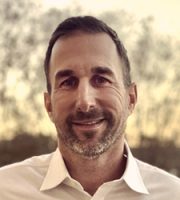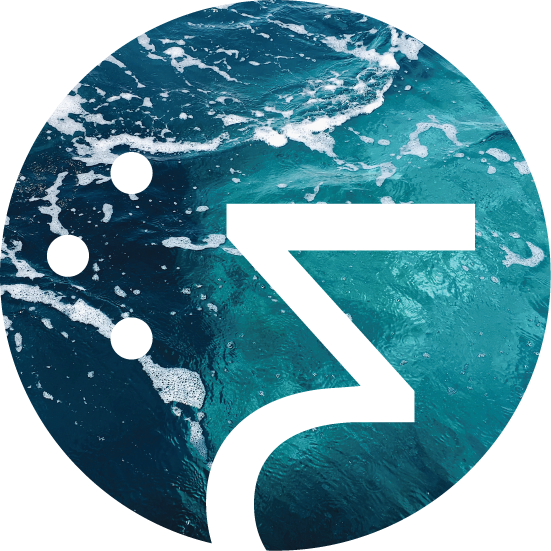Chris Cali is a serial entrepreneur with two successful exits of technology product and services companies.
Most recently, Chris was the co-founder and managing partner of Spark Digital, a technology consulting andsoftware engineering firm specializing in the Communications, Media and Technology industries. The firm served clients like Dow Jones, NBCUniversal, WWE and Verizon and was sold to intive in November 2021.
Prior to Spark Digital, Chris co-founded Panvidea, a venture-backed B2B SaaS company focused on cloud-based video transcoding and distribution. Here he oversaw sales, marketing, product, and engineering, ultimately selling the business to a private-equity owned stock video company in 2011.
Chris is an expert in the media industry, and has held various technical roles at Sony Music, Maven Networks (acquired by Yahoo!) and Music Nation. He has been a Techstars Cloud mentor, is an active investor, a member of the Renaissance Executive Forum and is on the board of the Elm Project – a summer camp for underserved youth with Sickle Cell Disease in the NYC tri-state area.
Why are you passionate about helping leaders of IT services firms?
My passion is in growing people and in helping them learn new skills and realize their potential. People are the largest asset of IT services firms. Creating a collaborative, learning culture where people are rewarded for innovating and putting clients first is what will ultimately set them apart.
When you and your partner founded the digital engineering firm Spark Digital in 2012, you chose to go deep in a specific vertical. What did that look like and how did that contribute to your success?
Having worked in the Media & Entertainment vertical as a software engineer for the years prior to starting Spark Digital, this was a natural fit. It was the easiest path to closing sales given my existing network. Much later we learned that the Communications, Media and Technology vertical existed at many larger consulting firms and this would make a nice fit for a tuck-in acquisition.
My advice around choosing a go-to-market strategy is to lean into your strengths. We’re operating in a very saturated market and any way you can differentiate early on and build upon your proven experience (be it horizontal or vertical) is going to strengthen your position. If you’re looking for a change in your GTM strategy as a more established company, look for the common thread in your portfolio where you have the most successful case studies and build a story around that. Narrow your focus and double down.
From the beginning, you chose to build the core of your delivery team in Latin America – Argentina specifically. What were the benefits of building there? What was harder than you expected it to be?
This was a lucky accident. My mom was born in Argentina and had already worked with teams in India and Romania in previous roles at Sony Music and Yahoo! I decided to explore LatAm first for time zone purposes. I also hoped that I’d have some sort of connection to that country and, therefore, my family there that I didn’t know very well.
I quickly learned that Argentina was an amazing choice given its availability of engineering and education. I then got lucky again in meeting my Co-Founder, Francisco Amadeo. He’s one of a kind and I would still go to war with him if need be.
As demand increased and supply got overpriced during COVID, we expanded our reach into other LatAm countries with much success. There’s no better place to serve the U.S. nearshore than Central and South America. There are some nuances in labor laws and the like that you will need to understand. Make sure you either have a trusted partner, employee and/or law firm located in the region.
Treat them the same as you would your onshore employees. Nobody performs well if they feel like a second-class citizen.
You sold Spark to intive in 2021 for a great outcome. What advice would you give to others that are considering selling their business? Anything you would do differently?
We never built our company with the thought of selling. We operated for cash flow and as a byproduct, built a very healthy, growing, profitable business. The time to run a sale process became apparent through a combination of market conditions and founder interests. Being organized, profitable and having a great management team in place for years prior made the process much easier than it would have been otherwise. A buyer is going to see through your last-minute org changes and notice that you’re scrambling to track down your unorganized data. Run your business well and wait for the time to become apparent.
If you are selling and planning to leave the business, don’t underestimate the mental loss you’re going to feel. It’s comparable to a death. Give it some thought and have a plan for your time. In my experience, the type of people that start and run a business are not the kind that are going to enjoy doing nothing for an extended period of time afterward and nobody has any sympathy for post-windfall depression.
There are a lot of benefits about building with a co-founder, but there will come times when you aren’t always aligned. How did you and your co-founder Fran navigate those times and remain a united team for your employees?
Luckily, Francisco and I mostly aligned on major issues. We gave each other a lot of autonomy and if we detected a misalignment, it always led to a great conversation.
Being caught up in the day-to-day most of the time, I think we both welcomed these conversations that challenged our brains a little more than usual. We were a great team in this regard and these conversations are what I miss most about owning the business.
My advice to anybody having these sorts of troubles is that there are very few issues in this business worth dying on a hill for. If you don’t agree with a direction, but you can see that the damage of going that direction for a little while isn’t unrecoverable, then let the learning begin.







